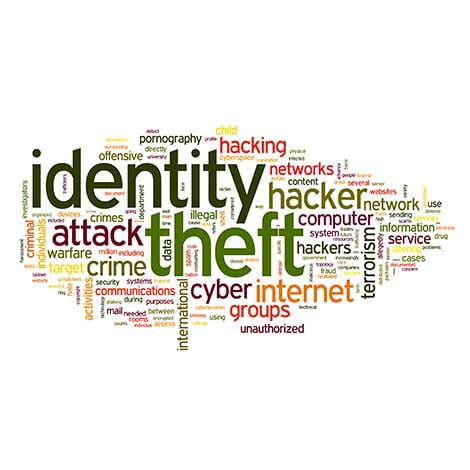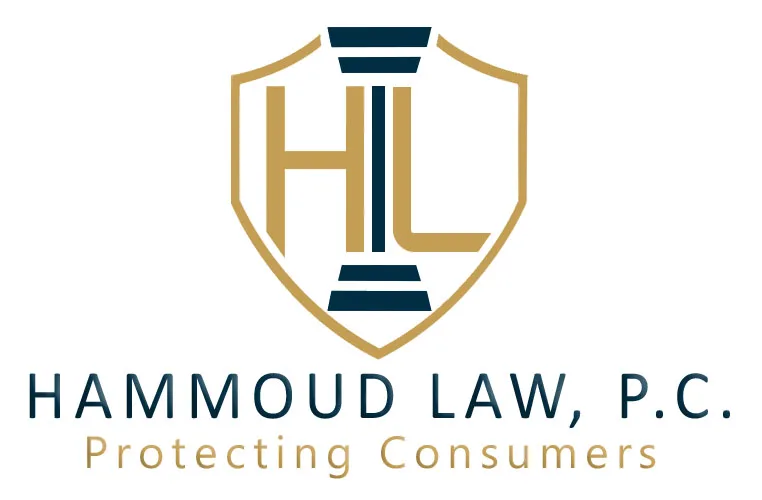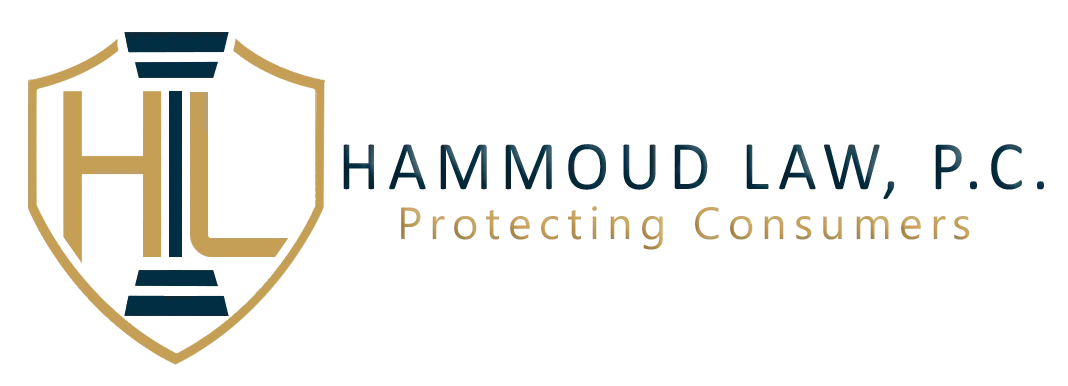Protecting Yourself from Identity Theft
by Youssef Hammoud, P.C. | July 2, 2022
Identity theft is a devastating and alarmingly common problem. A 2003 survey by the Federal Trade Commission revealed that 12.7% of respondents had been a victim of identity theft in the past five years. Affected individuals reported that criminals had falsely opened accounts under their names, taken over their existing credit accounts, or stolen credit card information to initiate fraudulent transactions. These crimes can result in hundreds of hours of wasted time attempting to correct an individual’s finances, thousands of dollars of debt being falsely attributed to victims, as well as long-lasting damage to their ability to obtain credit.

Identity theft is a devastating and alarmingly common problem. A 2003 survey by the Federal Trade Commission revealed that 12.7% of respondents had been a victim of identity theft in the past five years.[1] Affected individuals reported that criminals had falsely opened accounts under their names, taken over their existing credit accounts, or stolen credit card information to initiate fraudulent transactions. These crimes can result in hundreds of hours of wasted time attempting to correct an individual’s finances, thousands of dollars of debt being falsely attributed to victims, as well as long-lasting damage to their ability to obtain credit.
Following high-profile data breaches at some of the largest credit reporting agencies (CRAs) in the country—like the 2017 Equifax data breach that resulted in the publication of personal information on an estimated 148 million Americans[2]—it is more important than ever to be aware of what identity theft looks like and how to fight it. Whenever you see bills for items you don’t remember buying, receive calls and correspondence for accounts you didn’t open, or receive denial or approval letters for loan applications you don’t recall making, you may be a victim of identity theft.[3] If you see these signs, it’s time to take action.
An important preventative measure is to regularly review your credit reports for suspicious activity. Under the federal Fair Credit Reporting Act (FCRA), you are entitled to receive a free credit report from each CRA—Equifax, Experian, and Trans Union—once every year.[4] You may order your report by visiting AnnualCreditReport.com or calling 1-877-322-8228.[5] When you review your reports, you’ll want to pay special attention to your account tradelines and the inquiries section. Any information you don’t recognize should raise a red flag.
If you believe you are, or are about to become, a victim of identity theft, you shouldn’t wait. Contact authorities as soon as you can. You’ll want to file identity theft reports with your local police department as well as the Federal Trade Commission at IdentityTheft.gov.[6] Once you make an account on IdentityTheft.gov, you’ll have access to useful pre-written letters you can send to creditors to fix accounts, a recovery plan to guide you through fixing problems caused by identity theft, and be able to track your progress in fixing problems that the theft caused.[7] The identity theft reports you file with law enforcement and the FTC will support your claim that you suffered from identity theft in the event that you have to dispute any fraudulent information on your credit report.
You should inform your creditors and credit reporting agencies about the identity theft and any fraudulent information on your reports as soon as you can. Your creditors can freeze your accounts to stop identity thieves from using them while you assess your damage. You can ask the CRAs to place fraud alerts on your credit report, which will require creditors to verify your identity before opening any new accounts in your name. You can also ask the CRAs to freeze your credit report, which will stop creditors from opening new accounts or accessing your report. Make sure to contact all three CRAs, whether you seek a fraud alert or a security freeze. The appropriate mailing addresses and telephone numbers for each CRAs’ fraud department can be found on the CFPB website.[8]
Finally, you can dispute fraudulent information contained on your credit report. To do this, you’ll want to submit a packet to the CRAs including copies of the identity theft reports you filed with your local police and the FTC. You also need to include proof of your identity and a letter identifying the fraudulent debts and information on your credit report.[9] When the CRAs receive your request, they are required by the FCRA to block the disputed information from appearing on your report while they investigate your claims.[10] Make sure to mail this packet by certified mail and request a return receipt, so you can be sure the CRAs received it.
Identity theft is an incredibly complex crime, and it is very difficult to know when you’ve fully freed yourself from a fraudster. Following all these steps may not fix all your problems or make the fraud go away. If you think you are a victim of fraud or identity theft and you believe your credit reports have been or will be impacted, you should speak to an experienced credit reporting attorney about your next steps. Schedule Your Free Consultation!
[2] Haselton, Todd, Credit reporting firm Equifax says cybersecurity incident could potentially affect 143 million US consumers (Sep. 2017), https://www.cnbc.com/2017/09/07/credit-reporting-firm-equifax-says-cybersecurity-incident-could-potentially-affect-143-million-us-consumers.html.
[3] Consumer Fin. Prot. Bureau, How can I spot identity theft? (Jun. 2017), https://www.consumerfinance.gov/ask-cfpb/how-can-i-spot-identity-theft-en-1359/.
[4] See 15 U.S.C. § 1681j.
[5] Fed. Trade Comm’n, Free Credit Reports, https://consumer.ftc.gov/articles/free-credit-reports.
[6] Consumer Fin. Prot. Bureau, What do I do if I’ve been a victim of identity theft? (May. 2022), https://www.consumerfinance.gov/ask-cfpb/what-do-i-do-if-i-think-i-have-been-a-victim-of-identity-theft-en-31/.
[7] United States of America, Identity Theft, https://www.usa.gov/identity-theft.
[8] See supra note 6.
[9] Id.
[10] See 15 U.S.C. § 1681c-2.
Start Your Free Consultation Here!

Mailing Address
3744 E. Chapman Ave., #F12269, Orange, CA 92859
Telephone
T: (949) 301-9692
Fax
F: (949) 301-9693
Email
info@lawhammoud.com
